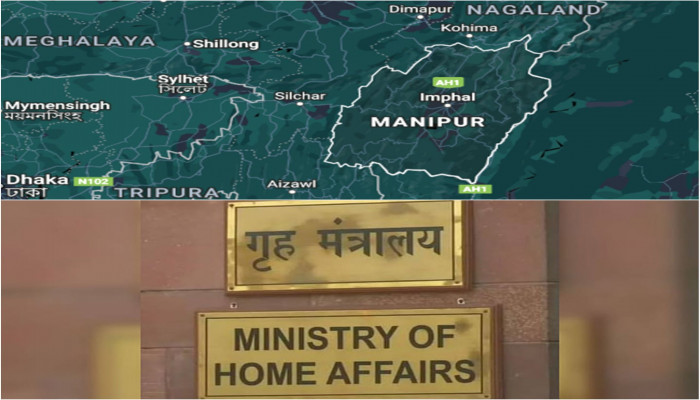Meitei and Thadou communities support centre’s initiative for unrestricted movement across Manipur
- In Reports
- 03:09 PM, May 05, 2025
- Myind Staff
Five groups representing Manipur’s Meitei and Thadou tribal communities have supported the Home Ministry’s efforts to allow unrestricted movement for all communities throughout the state, including along the National Highways in the valley and hill areas, as per an IANS report. The organisations, which include the Meitei Heritage Society and Thadou Inpi Manipur, also called for strict measures against any individuals or groups obstructing such free movement, emphasising that this is a constitutional right. On March 8, the Manipur government resumed bus services along four routes linking the districts of Imphal, Senapati, Kangpokpi, Bishnupur, and Churachandpur. The buses, operated by the Manipur State Transport Corporation (MSTC), were accompanied by a significant deployment of Central Armed Police Force (CAPF) personnel for security.
Despite being accompanied by Central Armed Police Forces, buses were attacked by members of tribal groups in various locations, including Kangpokpi district, sparking widespread violence. On March 8, violent clashes during protests by Kuki-Zo tribal organisations against the restart of bus services between Imphal and the hill districts resulted in at least 43 injuries, including 27 security personnel, and the death of a protester named Lalgouthang Singsit. The bus services had resumed to ease public hardship and help restore normalcy in the region. In a joint statement, these tribal bodies also called for a National Register of Citizens (NRC) drive, similar to the one in Assam, to identify "illegal immigrants" through a revised process.
“We reaffirmed to safeguard the integrity, unity, and interests of Manipur as a multi-ethnic state. All parties also recognised the significant roles and contributions of the Thadou people for the protection of the collective interest of Manipur people and the state’s integrity,” according to the statement.
The statement mentioned that all parties unanimously agreed to request the appropriate authorities to remove the “unconstitutional and ambiguous category Any Kuki Tribes (AKT)” from Manipur’s list of Scheduled Tribes. The statement alleged that the vague classification is being misused by undocumented immigrants to wrongfully claim Scheduled Tribe (ST) status, fuelling what it described as a dangerous ideology of “Kuki Supremacism” that threatens social harmony in Manipur and poses a risk to national security.
The groups further argued that the AKT community was wrongly included in Manipur’s ST list in 2003 for political motives, which they claim opened the door for widespread entry and legitimisation of illegal immigrants. “The parties agreed that the term ‘Kuki’ is neither an ethnic nor a cultural identity, but rather a faulty colonial construct that was later exploited by the power-hungry activists and vested interests with separatist and political ideologies to gain control over local indigenous communities and separate from Manipur. None of the 29 originally recognised tribes of Manipur identify as Kuki or AKT. Therefore, the use or reference to the term ‘Kuki’ must be discontinued in all academic, research, and official settings.”
The statement emphasised that to safeguard the true cultural identities of Manipur’s indigenous communities, the names of officially recognised Scheduled Tribes under Article 342 of the Indian Constitution should be used specifically for the tribe they represent. It stressed that these names should not be generalised or used under any broad, colonial or externally imposed category.







Comments